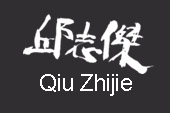Chinese has been working with the medium of photography in the art circle for more than 10 years. In the name of conceptual photography, former' painters control this medium in a wild way. They hired professional photographer to carry out their concept. The artists themselves spent most of the time on doing an attractive make-up and cut and paste' technique in Photoshop. This is an insult to the history of photography in the eyes of the professionals. This exhibition at Fotanian Open Studio features 4 Chinese artists who all focus on the theme of Night Photography, demonstrates a new creative attitude in the medium. They begin to rethink the nature and logic of photography, exploring new possibility and re-inventing their own equipment. The common belief of them is: Photography should be created and appreciated in the language of visual experience. It should help the audience to observe.
The main reason to shoot photo at night is aimed to have more choice. We can decide the objects to be seen' and not to seen'. In the daytime, normal light' captures all the objects in full detail. In the nighttime, instead, we need to bring out the objects by providing source of light and exposure time. More precisely, we need the attention' to select' the objects for light exposure. If photo taken by day is reality, then photo taken by night should be regarded as memory. Memories are always scattered in the darkness. The photographers have to put great effort to discover them and reconstruct their form of existence.
Zheng Duanxiang and Guo Yilin both uses long exposure time to capture the details of the scene or still life. Zheng's exposure time can be up to an hour. The source of light is given and controlled by the artists by using hand torch, in terms of time and power. The audience sees only the objects selected' by the artists.
Jiang Zhi's applies strong lighting into the dark scene. Light becomes an extreme authority which denies the nature of seeing. It denies the face, texture and even form. Images supposed to be respected are washed away into memory. Light bright like daytime' becomes unbearable in the dark. It is a violent action to personal memory.
Qiu Zhijie's Photography Theatre captures the movement of people in different open areas. In long exposure time, the artist provides lighting selectively and records the preset
|
